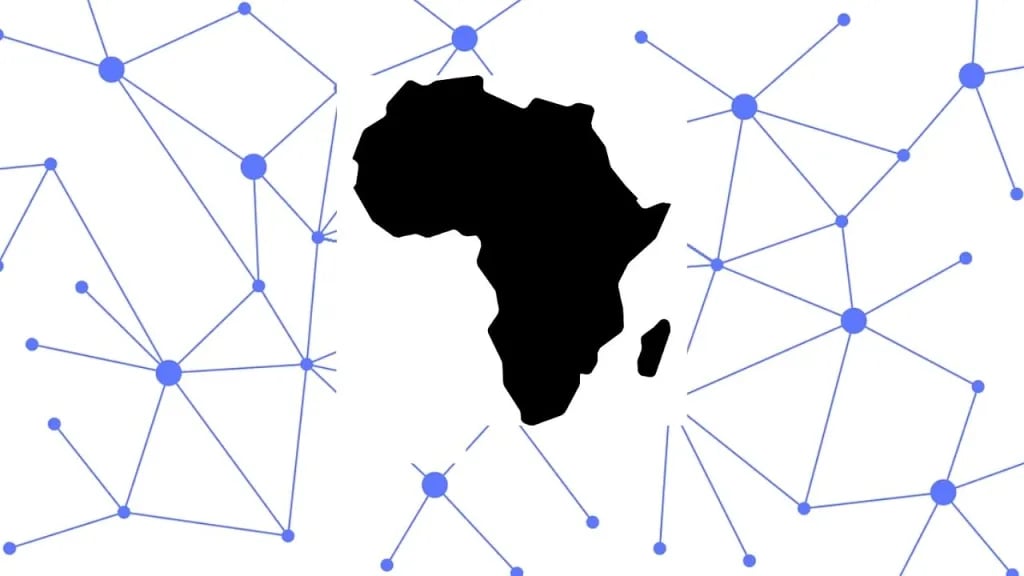It was 6 pm on a Friday, and instead of logging off for the weekend, professionals and business owners across Africa joined a LinkedIn Live session for a conversation about business payments on the continent. The hour-long session, hosted by Condia, featured Dom Okiemute, CEO of Miden; Mallick Bolakale, CEO of Startbutton; and Joseph Olaoluwa, Acting Managing Editor at Condia.
Within minutes, they were unpacking why 52% of Nigerian businesses suffered payment failures last year, and how it once cost $87 to send $1,000 from Nigeria to Tanzania.
The conversation, sparked by Miden’s recent report surveying 303 businesses across Nigeria and South Africa, revealed a continent fraught with fintech innovation and fragmented infrastructure.
Why Stablecoins work for cross border but fail locally
When asked if stablecoins could fix cross-border payment problems, Okiemute was cautiously optimistic. He said stablecoins make sense for emerging regions with weak financial systems because they offer speed and stability that traditional rails can’t. Cross-border transfers that once took days now settle in minutes.
Still, he noted that stablecoins are not suitable for domestic transactions. Most are pegged to the US dollar and lack local adoption. Nigeria’s cNGN, a stablecoin backed by the naira, exists but hasn’t gained mainstream use. Until local digital currencies like this see broader acceptance, he said, “we’ll still have to deal with fiat.”
Bolakale agreed, adding that Central bank digital currencies (CBDCs) could see massive adoption if central banks made them interoperable with popular stablecoins like USDT or USDC. But without that link, uptake remains limited, and African businesses trying to escape dollar dependency end up relying on it even more.
The African disunion: 52 countries that can’t agree
Okiemute recalled a former colleague in the UK who attempted to replicate Revolut’s subscription-style banking model in Nigeria, only to discover that no one was willing to pay monthly to access their own money. It was a lesson in how copying European models rarely works in Africa.
Europe has 26 countries that agree on standards. Africa has 52 central banks that don’t even see eye to eye, sometimes not even across neighbouring borders.
Some progress is happening. Francophone Africa’s eight countries are gradually aligning through the Pan-African Payment and Settlement System (PAPSS), while East Africa often takes cues from Kenya’s framework. Still, as Okiemute put it, “We don’t have an African Union. We have an African disunion.”
Bolakale argued that regulation matters more than infrastructure. According to him, Nigeria’s infrastructure is world-class. But where there’s no clear regulation, payments break down. Regulation drives infrastructure, not the other way around.
When speed creates its own problem
Olaoluwa shared how paying a visa fee to India once took him two weeks; a reminder of the problem we still face in Africa. The panel agreed that while instant payments sound great, speed without safeguards can worsen fraud.
Okiemute explained that once fraudulent funds hit, they vanish in seconds, leaving no time for reversals. He suggested that not every transfer needs to be instant. Large B2B payments, for instance, could take an hour or two to clear with additional verification. Without that balance, bad actors exploit the system.
Right now, that balance doesn’t exist. “Someone moves ₦5 million ($3400), splits it across 50 POS terminals, and it’s gone. Because of the slow recovery process, you rarely get those funds back,” Okiemute said.
Bolakale noted that a few banks have functional recall systems that trace false transactions in a couple of days, but such systems are rare. Ironically, faster recall mechanisms can also be abused, creating new security risks.
In the UK, Okiemute noted, wallet providers face liability of up to £85,000 if users lose funds due to poor compliance, a rule that compels institutions to prioritise security. Nigeria doesn’t yet have such accountability.
Related Article: How AI Can Detect Fraud in African Fintech
Beyond systems: the people problem
Olaoluwa raised another gap: media literacy. “Sometimes the media is learning from the founders. It wasn’t until I experienced payment delays that I really understood how fintech works.” he said.
Okiemute suggested media houses should embed reporters within fintech companies to truly understand how products work. Bolakale disagreed slightly, citing confidentiality issues, but both agreed that financial literacy at all levels remains a key challenge.
Despite the challenges, Okiemute ended on an optimistic note. If Africa achieves true interoperability between currencies, banks, and countries, he believes the results would be transformative. The continent’s 44 million SMEs continue to face challenges in moving money efficiently, but this could change.
The conversation revealed an Africa bursting with fintech ingenuity but held back by fractured policies and unreliable systems. Speed has come at the expense of reliability, and regulation lags innovation. But if the infrastructure pieces connect properly, the flow of money across the continent could finally match its ambition.
Get passive updates on African tech & startups
View and choose the stories to interact with on our WhatsApp Channel
Explore




